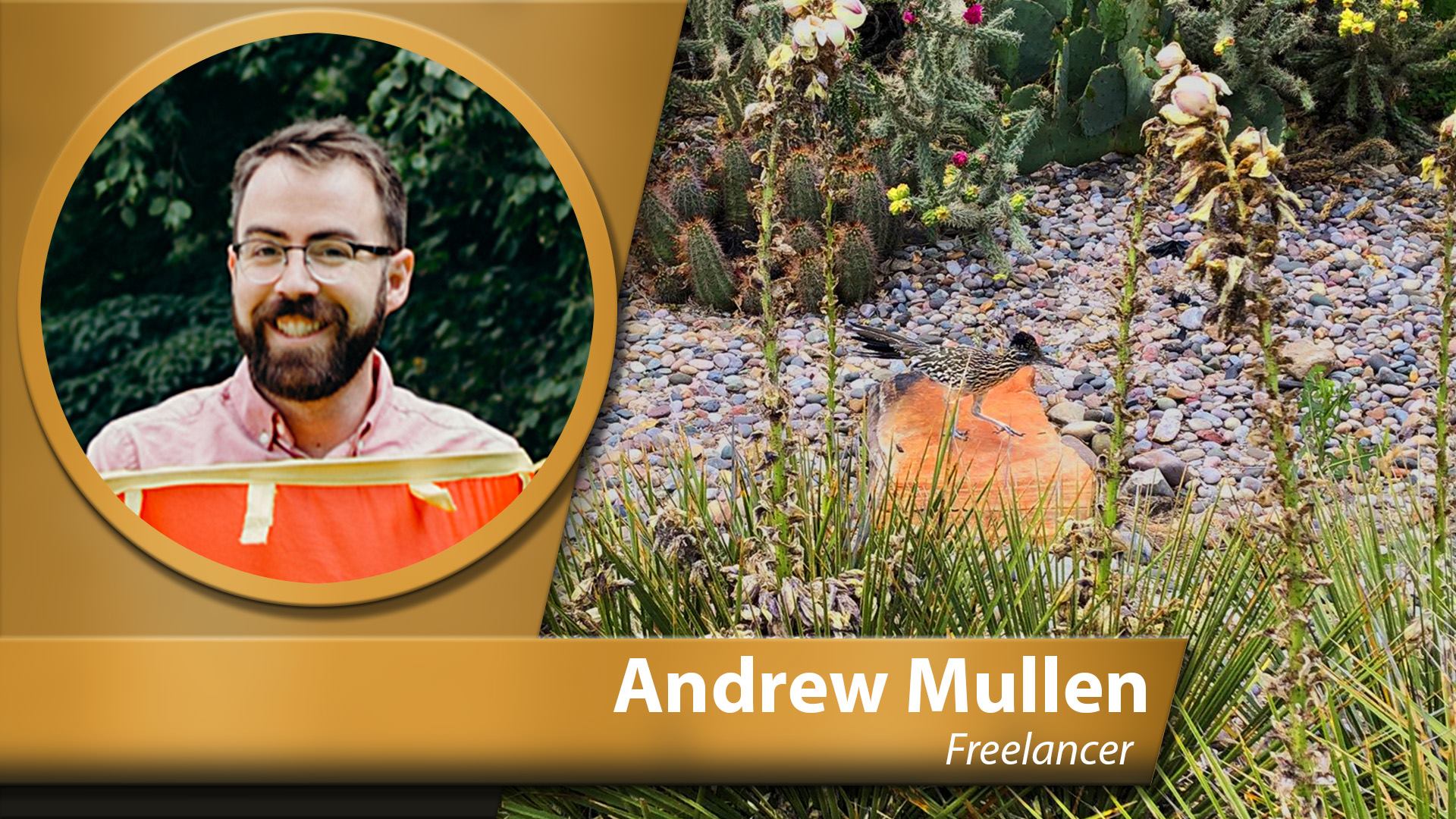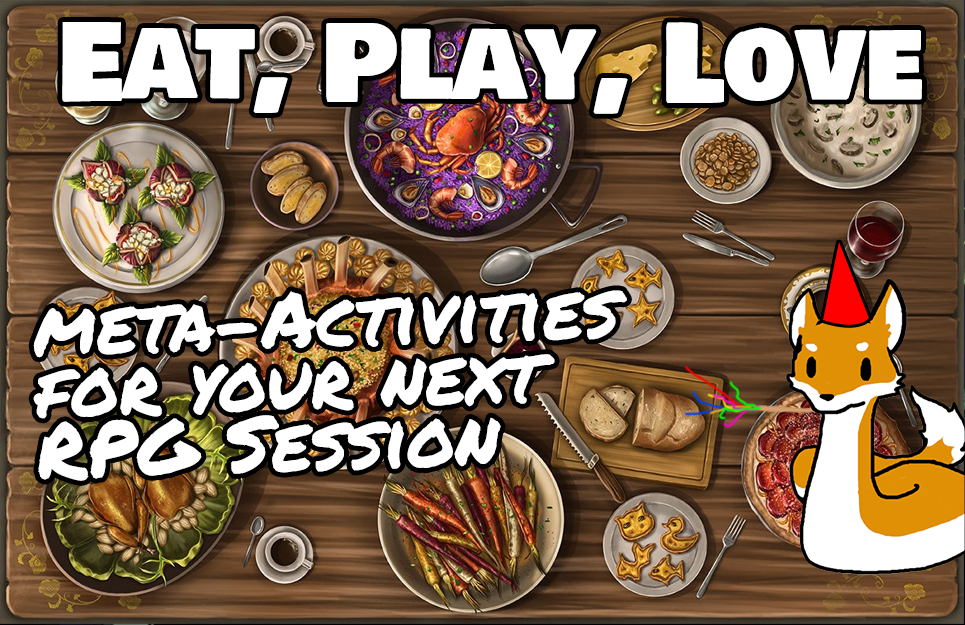By Andrew Mullen
It’s always a pleasure seeing a project hit print. The production pipeline is long, and by the time something’s out, I’ve forgotten enough of the details that the content manages to be a pleasant surprise. This is especially true with my most recent published work, the Magaambya section in Lost Omens Character Guide. I’ve always liked the Magaambya, but there wasn’t a ton of detail about them. Getting to flesh out their organizational culture and structure was a fantastic opportunity, and I’m thrilled to see the end result of Paizo’s development and editing—especially because the Magaambya assignment was one of the most challenging I’ve undertaken.
I’ve been an RPG freelancer for about two and a half years, and while my list of publications is growing, I’m still learning to navigate my new career. There’s tons of great freelancing advice out there, particularly on Know Direction’s con panel recordings and interviews, but hearing the advice is different from feeling it. This is especially true if you’ve never written professionally before getting into the RPG business. You need to encounter those challenges—a Magaambya article, perhaps?—for it all to sink in. Here are a few things I wish I’d realized sooner.
You Don’t Need Permission to Start
Before RPG freelancing, I’d never written professionally. Once I decided to get into the industry, I started on a submission for the Wayfinder fanzine. But I didn’t want to ‘mess up,’ and I spent a lot of time looking for a more established author who might guide me. This is the period I spent I call ‘speaking politely into the void.’ I don’t fault anyone for not responding. People are busy, and mentorship takes a lot of effort! And that’s certainly not to say you shouldn’t reach out for help; I’m always happy to talk to prospective freelancers, for instance.
But while you can approach someone with ‘I’m new, how does all this work?’, it’s better to have writing for someone to critique. I spent too much time trying to make sure I ‘did things right’ instead of actually writing. Getting words on a page and experience under your belt is the quickest way to build skills and figure things out!
It’s OK to Ask Your Developer Questions
No, it really is! I know the worry that you’ll be annoying or tiresome! Just make sure you’re asking important questions. Developers are generally happy to help out, but they’re busy and don’t really have time for back-and-forth email conversations. Go for multiple questions in one email instead of spreading them out. Ask assignment-shaping questions early, e.g. ‘the outline says to use Big Concept X, but Big Concept Y might make more sense—would that be an OK change?’
For smaller, more nuanced questions, save them up for a milestone or other scheduled check-in point. Something like double checking the identity choices for an NPC, or seeing whether or not 5th level seems like a good prerequisite for a feat. Comments on your turnover can help add nuance, too.
For other questions, let’s look at my next point!
You Don’t Have to Work Alone
This is huge. Yes, you probably signed an NDA as part of a contract. Yes, developers want to know you’re being professional. But you can still get help from other freelancers! Just ask your developer if it’s OK to bounce ideas around with a specific person. They’ll likely say yes, and if you’re new, they might even be able to point you towards a more experienced writer who could give you a hand. Collaboration is also getting easier as more and more projects use Basecamp, Discord, or other platforms to coordinate efforts.
For real, this is a big deal. As a new RPG author, it can be tough to stay productive, learn the ins and outs of a game system, and get past creative blocks. It’s easier with friends!
Learning Your Pace is Hard
So you received and finished your first gig—awesome! You probably had a month to write 600-1200 words and go over them with a fine toothed comb. It went well, and you learned a lot. The next assignment will go quicker, right?
Well, maybe. You certainly build skills and aptitude as you write! But as someone who hasn’t had to write to newspaper deadlines or deal with a mountain of grad school papers, I didn’t have a handle on how much I could write over an extended period of time. I still struggle with it.
Writing to a professional standard and hitting deadlines can be exhausting, especially with mental health complications thrown in (I deal with ADHD and frequent depression). So if you’re new and taking a cautious, responsible approach to accepting work, give yourself even more leeway than you think is necessary.
Recognize When You’re Stalling
Have one of those days where you can’t write? Have those days turned into a week? Are you avoiding your word processor? You’re stalling out—get some help! Avoidance rarely means progress, and the longer you avoid the assignment, the more stressful everything gets. I find that bouncing ideas around with others helps get past these blocks, or even talking through a concept out loud to my dog. A little exercise is good, too.
Keep Mental Health in Mind and Reach Out When Appropriate
This isn’t necessarily specific to writing, but it’s important. It’s also part of Learning Your Pace. Personally, my depression tends to wax and wane every two or so weeks. I have to take this into account when I’m accepting assignments, and if something exacerbates a depressive episode, I make sure to let my developer know. It’s always important to be communicative if there are problems on the horizon, and sometimes devs have some deadline flexibility. To be honest, it can be tough not to feel like a burden sometimes, but I know that by being open and professional I’m doing the best I can in a tough situation.
Keep Proof That You’re Not An Imposter
Writing can be lonely work, with long stretches between external validations. It can be tough to maintain a healthy perspective on your work, too, especially after a long and stressful project—rarely can I accurately assess the quality of my turnovers.
Imposter Syndrome loves to sneak through all these cracks. I have a “You’re Fine!” label in my Gmail where I dump the positive feedback I get. If I start getting in a bad place, I can check that folder for reminders that yes, I can do a good job.
Your Relationship with RPGs Will Probably Change
Writing professionally is different from writing for your home group, and the two can influence each other in unexpected ways. I used to do a ton of play-by-post gaming, but found that having to write those posts drew from the same well of creative energy as my professional work. I had to back off of those gaming commitments to avoid burnout. Similarly, I don’t have the same motivation for GM prep as I used to.
That doesn’t mean I don’t game—participating in the hobby is an important way to recharge my energy and enthusiasm—but it does require some changes. It’s hard to know how this might affect you until it happens, but keep it in mind!
Writing is the most fulfilling career I’ve ever had, but also the most difficult. I’ve learned a lot in the last two years, and I hope these lessons are helpful and illuminating for others!
About Andrew Mullen
Andrew has been playing TTRPGs since the bygone days of 2013. After an adulthood of landscaping, coffee shop gigs, and a brief teaching career, he now splits his time between freelancing and homemaking. For the former, he likes writing about plants, fantasy cultures, and monsters. For the latter, he’ll throw just about anything in a Dutch oven. You can find him on Twitter @afmullen, and if you have any questions about freelancing, he’s happy to answer them!







Thanks Andrew for the advice! Also, loved the Magaambya section of the Character Guide. I’m thrilled to see Paizo’s investment in the world they’ve created and even more so to learn of this amazing culture, the magic they practice, and the philosophy that brings the two together.
I doubt that I’ll end up writing freelance RPG stuff, if I write for a career at all – but sometimes I’m tempted, and curious. This seems like the kind of advice that’ll be applicable whatever happens, so thanks. ~w~